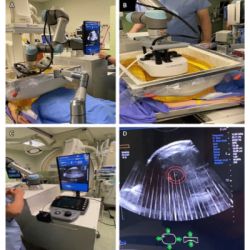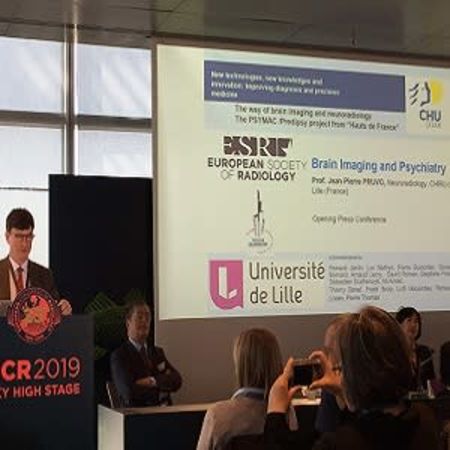Mental health has become a global pandemic. The World Health Organization (WHO) reports one out of four people will suffer from mental disorder in their lifetime.
Breaking new ground as is customary for ECR, this year special attention was given to the need for brain imaging in psychiatry. Prof. Jean-Pierre Pruvo head of the Department of Neuroradiology at the University Hospital Lille, asked how could we rise to the challenge of early detection and intervention.
He stated that schizophrenia represents 1% of the population with its onset mostly concerning teenagers, with approximately 1600 new cases each year in the region “Hauts-De-France.” Patients often suffer from the stigma and social isolation resulting from their condition which leads to non-diagnosis and delayed treatment.
You may also like: #ECR2019: AI will be driven by radiologists
Prof. Pruvo showed that mental illness constitutes a large portion of western countries healthcare spending and said that in 2016 in France, psychiatric disorders and medication accounted for close to 20 billion Euro, reaching second place in terms of public health spending, cardiovascular diseases, cancer, Alzheimer’s or diabetes.
Studies have shown that early detection and intervention results in significant benefits and better outcomes for patients dealing with mental disorders. Early treatment prevents recurrence in 80% of schizophrenia and 60% of depression episodes. Prof. Pruvo said their purpose was to find new biomarkers derived from all fields of science comprising neuroimaging, biology and genetics, that would help clinicians determine when a patient should undergo treatment and help deliver precise treatment that best fits the patients individual needs.
The advent of high-field MRIs has brought great improvement in neuroimaging (3T and 7T) combined with the development of data processing using AI and machinelearning to help enable deeper understanding of which brain structures and networks are at stake in a patient’s cognition, how treatments work and on what biological pathways and how to predict and measure their effects.
There are encouraging results from this approach and promise hope for future discoveries that will further improve care.
Prof. Pruvo presented his experience in the “Haut-De-France” region, saying that they developed clinician-radiologist partnerships in projects called PREDIPSY and PSYMAC. Both of these are dedicated to research and rely on a regional network of MRIs. Their aim is to extend high-field MRI installations in order to find out new biomarkers, validate them on large scale cohort studies using their existing MRI network and eventually hand them to clinicians and patients facilitating the move towards precise, individual, reactive and affective approaches.
Source: HealthManagement.org live coverage
Image Credit: HealthManagement.org live coverage
References:
Latest Articles
Radiology, mental disorders, brain imaging, #ECR2019
Mental health has become a global pandemic. The World Health Organization (WHO) reports one out of four people will suffer from mental disorder in their lifetime.



























